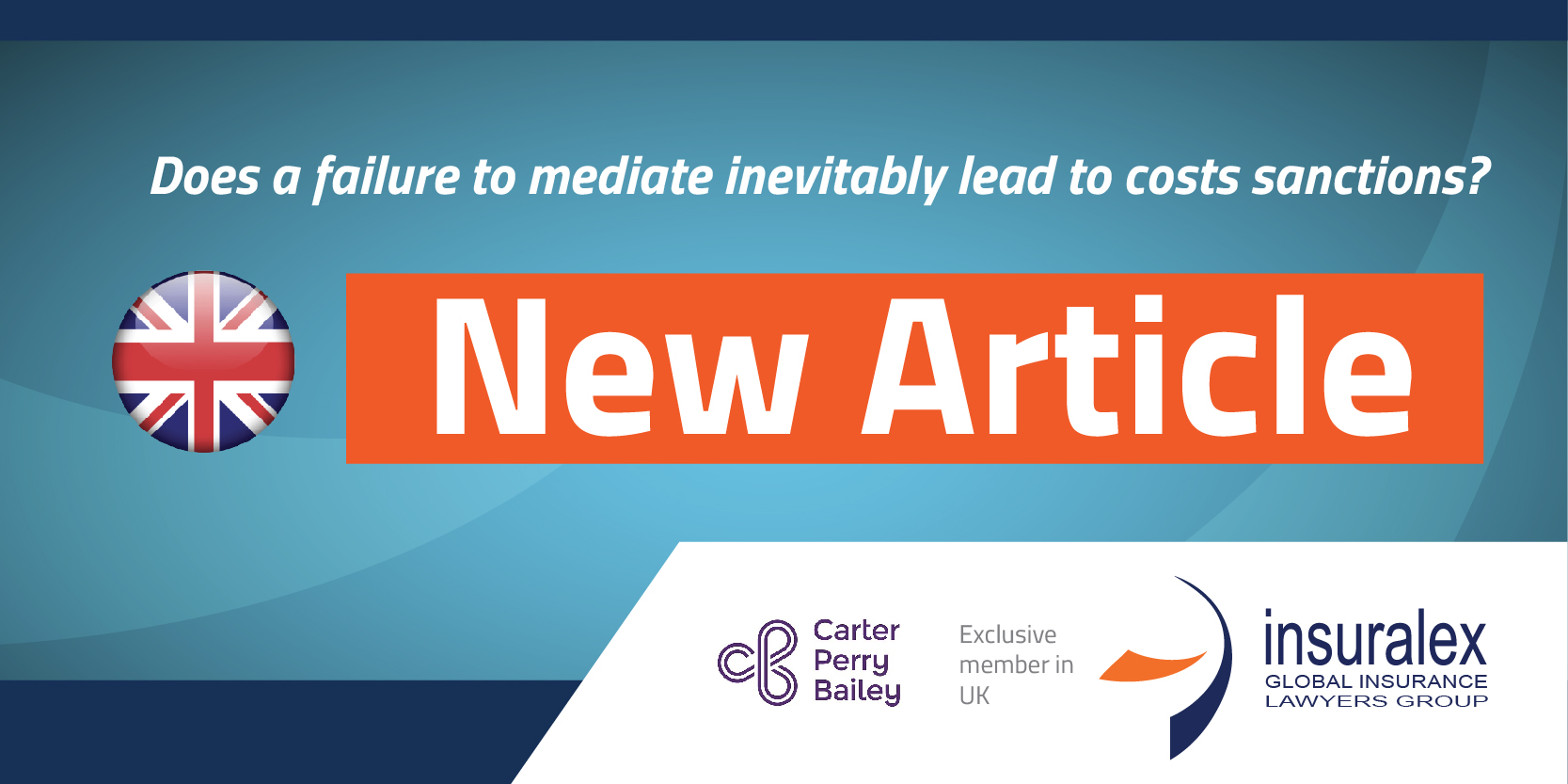
A summary of the case of Patel & Ors v Barlows & Ors [2020] EWHC 2795 (Ch)
In our previous article, Mark Aizlewood and Dean De Cesare considered recent case law that highlighted the Courts’ increasing tendency to impose costs sanctions on litigants that failed to participate in the mediation process. In a slight reversal from that position, the recent case of Patel & Ors v Barlow & Ors shows that the Courts will be slow to impose those sanctions where the litigant can show that their refusal was justified in the circumstances.
The underlying dispute concerned a joint venture that resulted in a payment being made to a third party that dissipated the funds shortly before becoming insolvent. The Claimants succeeded and judgment was handed down in October 2020 following which the court considered various issues as to costs.
Costs Order
The court held that the Second Defendant should pay the Claimants’ costs, to include the costs of the Claimants’ claim against the First Defendant.
The court went further in deciding that, due to the actions of the Second Defendant by reference to the factors set down in CPR 44.2, the Claimants should be entitled to costs on the indemnity basis. In doing so, it was noted that the courts had steadfastly continued to refused to provide detailed guidance on when such an order should be made, noting that it was fact specific and would vary from case to case.
Failure to Mediate
In seeking to challenge the Court’s decision, the Second Defendant pointed to the Claimants’ refusal to participate in mediation as a reason why the court should not make the usual order for costs or award costs on the indemnity basis. While the court agreed that this argument was reflected in the CPR, and that there was case law to the effect that an unreasonable failure to mediate may lead to a costs sanction, (see Halsey v Milton Keynes NHS Trust [2004] EWCA Civ 756), this would not always be the case.
The court cited the case of Northrop Grumman Missions Systems Europe Ltd v BAE Systems (Al Diryah C41) Ltd [2014] EWHC 3148 (TCC) in which Ramsey J had listed six factors as being relevant to determining costs: (i) the nature of the dispute; (ii) the merits of the case; (iii) the extent to which other settlement methods had been attempted; (iv) whether the costs of ADR were disproportionately high; (v) whether any delay with ADR would have been prejudicial; and (vi) whether ADR had a reasonable prospect of success.
Disregarding the nature of the dispute, which was irrelevant, when considering all the other factors, the court considered that the Claimants’ actions were reasonable: there was a strong claim against the Second Defendant, mediation would have been expensive and it was unlikely to succeed. However, and importantly, the Claimants had not outright rejected the offer of mediation.
The Second Defendant had made an offer of £40,000 and proposed mediation. The Claimants responded to say they were not opposed to mediation but were in the process of making an offer. The Second Defendant agreed to postpone any mediation plans pending receipt of the offer. The Claimant made an offer of £315,000, which was formally declined. The Second Defendant also declined to make a counter-offer, at the same time noting that mediation was unlikely to be productive.
The court considered that the parties were so far apart that it was difficult to see what could have been achieved at mediation save for incurring further costs on each side. On that basis, it was difficult to criticise the Claimants for not participating in mediation when without prejudice correspondence had been attempted and failed. Either side could have improved their respective offers, but neither did so. It was therefore unlikely that either side would have been willing to make the concessions at mediation that would have resulted in a resolution of the matter.
CPB Comment
This is not the first time that the courts have found a failure to engage in mediation to be justified on the facts. Although courts are keen to encourage parties – even in the strongest possible terms – to explore ADR, they have also noted that it would be wrong, and contrary to the principles of access to justice, to compel them to do so. The courts are therefore continually seeking to strike the balance between what amounts to a reasonable/unreasonable failure to engage in ADR. Often, this is very fact-specific and is unlikely to be explored in any detail until the matter has concluded and the court is considering issues of costs. By this time, it is too late for the parties to do anything about it.
Litigants should consider any offer of ADR very carefully and, if it is to be refused, make sure that the grounds for doing so are justified at the time as such refusal, if unreasonable, may well lead to an adverse costs order. Conversely, where a party refuses to mitigate, the offering party should not expect this to lead to an automatic costs sanction in its favour when a Court comes to determine costs issues. Both parties’ conduct will be scrutinised by the court in deciding whether a refusal to mediate was reasonable.
The same considerations apply in accepting Part 36 Offers. In the recent case of Roxanne Pallet v MGN [2021] EWHC 76 (Ch), the Claimant was awarded all of the costs of the proceedings even though a Part 36 Offer was accepted out of time on the basis that the Claimant’s failure to negotiate up until that point had been reasonable on the facts.
 Samantha Zaozirny
Samantha Zaozirny
Associate
T: 0203 697 1906
M: 007880 221676
E: Samantha.zaozirny@cpblaw.com

Simon Thomas
Partner
T: 0203 697 1902
M: 07469 856128
This information has been prepared by Carter Perry Bailey LLP as a general guide only and does not constitute advice on any s pecific matter. We recommend that you seek professional advice before taking action. No liability can be accepted by us for any action taken or not as a result of this information, Carter Perry Bailey LLP is a limited liability partnership registered in England and Wales, registered number OC344698 and is authorised and regulated by the Solicitors Regulation Authority. A list of members is available for inspection at the registered office 10 Lloyd’s Avenue, London, EC3N 3AJ.



 Samantha Zaozirny
Samantha Zaozirny